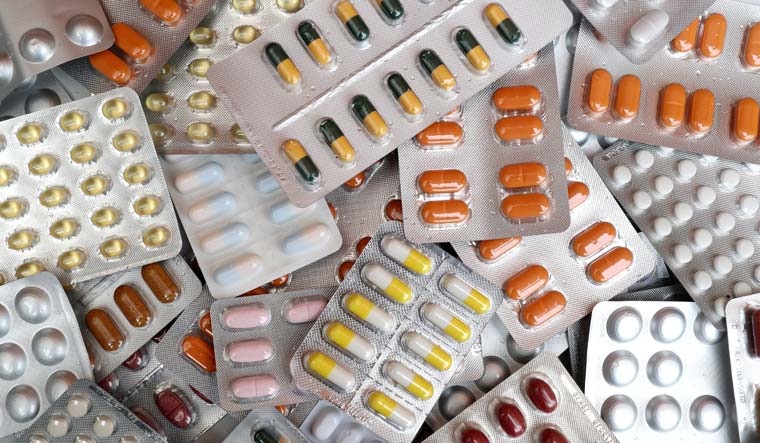Higher exports are likely to help the Indian pharma sector to garner upto eight to nine per cent growth this fiscal. It is expected that the Rs 2.8 lakh crore Indian pharmaceutical sector is set to emerge stronger due to higher exports despite the COVID-19 pandemic this fiscal. A report by CRISIL says that the Indian pharma sector is well-diversified with exports and domestic formulations accounting for almost equal share. The report points out that this fiscal, the growth in exports will be around 11-12 per cent when compared to 10 per cent during the last fiscal.
The report observes that the operating profitability for around 350 pharmaceutical companies rated by CRISIL representing 70 per cent of the sector revenue, would soften by 100-150 bps but remain healthy at 19 per cent despite higher input prices for drug manufacturing. Credit profiles of pharma companies will continue to be supported by healthy balance sheets. Interestingly the export pie is divided into regulated markets such as the US and Europe (45 per cent), rest of world (ROW) markets (35 per cent) and bulk drugs (20 percent). It is expected that exports growth will remain strong at 10 and above in each of the segments in the current fiscal.
The growth in the regulated markets will be supported by steady increase in new product launches from compliant plants that will lower pricing pressure on existing generics, and a visible easing in scrutiny by the United States Food and Drug Administration (US FDA) in recent months.
“India accounted for almost half the abbreviated new drug application approvals provided by the US FDA since fiscal 2019. This strong pipeline, coupled with lower import alerts and warning letters in recent months, should ensure a steady pace of new launches, which will help sustain export momentum to regulated markets,” remarked Isha Chaudhary, Director, CRISIL Research.
At the same time exports to ROW markets, too, are expected to rebound to 10 per cent compared with 7 per cent this fiscal that will be driven by opportunities in under penetrated generic markets such as Africa and Latin America. Also, bulk drug exports are expected to benefit from moves worldwide to reduce dependence on China.
Experts at CRISIL on a query from THE WEEK on the increase in raw material prices by China and that impacting Indian pharma players said that although there has been an increase in raw material prices from China, pharma players are able to pass on the rise in prices. Also diversification of supply chain from China and dual sourcing strategy (China plus India) has opened new opportunities for players, supporting revenue and margin growth. Some bulk drug players have also allocated their capacities and resources to more profitable products. Export demand for both formulation and bulk drugs is strong owing to COVID-19. The PLI (Performance-linked incentive) scheme, announced recently by the government to boost domestic bulk drug manufacturing, aims at reducing import dependence. However, it will come to fruition only in the medium to long term.
“Higher exports should offset some of the reduction in domestic formulation sales because of pandemic led disruptions, especially in the acute therapies segment. At the same time, lower footfalls in hospitals and fewer field visits by medical representatives have affected prescription based sales in acute therapies, as evident from the steep moderation in the first quarter sales of anti-infectives and gastro-intestinal drugs. On the other hand, a steady demand for chronic therapies pertaining to lifestyle diseases should help keep domestic formulation sales growth at around 5 to 6 per cent,” said Tanvi Shah, Associate Director, CRISIL Ratings.
It is expected that despite the slight moderation in business performance, credit profiles of domestic companies would remain largely steady, benefiting from healthy balance sheets and liquidity. Equity infusions from private equity funds have also helped improve credit metrics in recent times. Experts at CRISIL expect an increase in capital and research and development spending, as well as efficient working capital management will enable Indian pharma companies to manage transition through the current challenging times.
However there are challenges as a few large Indian pharmaceutical companies are facing antitrust suits in the US and any unanticipated litigation costs or adverse developments such as increased US FDA scrutiny impacting new product launches will be monitorables.






